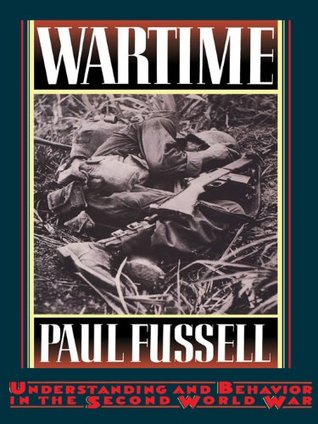More on this book
Kindle Notes & Highlights
by
Paul Fussell
Read between
September 19 - October 20, 2023
The postwar power of “the media” to determine what shall be embraced as reality is in large part due to the success of the morale culture in wartime. It represents, indeed, its continuation. Today, nothing—neither church, university, library, gallery, philanthropy, foundation, or corporation—no matter how actually worthy and blameless, can thrive unless bolstered by a persuasive professional public-relations operation, supervised by the later avatars of the PR colonels and captains so indispensable to the maintenance of high morale and thus to the conduct of the Second World War.
The same tricks of publicity and advertising might have succeeded in sweetening the actualities of Vietnam if television and a vigorous uncensored moral journalism hadn’t been brought to bear. America has not yet understood what the Second World War was like and has thus been unable to use such understanding to re-interpret and re-define the national reality and to arrive at something like public maturity.
What annoyed the troops and augmented their sardonic, contemptuous attitude toward those who viewed them from afar was in large part this public innocence about the bizarre damage suffered by the human body in modern war.


